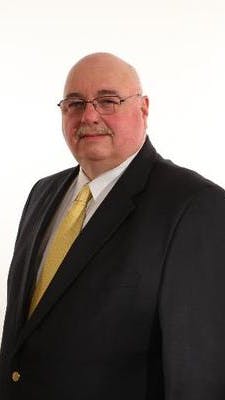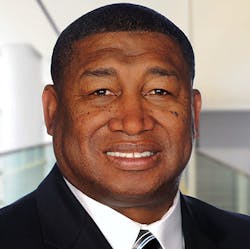Career Advice: My Biggest Mistake and What I Learned from It (Part 1)
The IndustryWeek Talent Advisory Board offers monthly advice on how its members got to where they are in the manufacturing world. They offered so much great advice for April that we're breaking it into two parts, with half of the responses running today (Thursday, April 27, 2023) and half (Part 2) running tomorrow (Friday, April 28, 2023). If you have a question for the group, please send it to [email protected]. This month's question was:
What’s the biggest mistake you made early in your career, and what did you learn from that experience?
Performance/Image/Exposure
I learned things in two key areas:
- Target information to your audience—I thought I needed to share a lot of information to defend my view and demonstrate that I was capable, thorough and smart. I quickly realized that my intelligence is assumed and that for impact, targeting the message to the interests of the audience had a greater impact. I also learned that I needed to have a one-minute and a five-minute version of the 20-minute presentation which I could deliver confidently at short notice as meeting schedules often get derailed.
- Performance alone will not translate to corporate advancement—While my performance and track record built my credibility and demonstrated that I could take on more responsibility, this itself was not enough to advance in a large organization. My image and exposure/visibility, which in fact are judgments made by others, had a greater impact on my career advancement. This image/brand and visibility can be developed by working on different projects, in different roles and within different teams so you can broaden your network. This concept of P.I.E., Performance/Image/Exposure, was developed by Harvey Coleman in his book Empowering Yourself, The Organizational Game Revealed and remains as valid today as it did in mid-’90s when I was in the early stages of my career. The concept of P.I.E. is described very well in this article. In summary, the impact of Performance is 10%, whereas Image is 30% and Exposure is 60%, the latter being greater determinants in ascending to very senior levels.
We all make mistakes and blunders. The key to any mistake is to own the error, speak up to minimize the impact on yourself and the organization and learn from the experience. As Carla Harris says, “Making a mistake does not make you special. Everyone makes mistakes … What makes you special is how and if you get up… Take the blessing of the lesson and move on.” Watch her insightful video here.
A Leader's Task
Carl Livesay, General Manager, Mercury Plastics Inc.
Early in my career I made a lot of mistakes. Identifying the biggest one took a minute or two.
The result was my team’s inability to trust me. So began a vicious circle, albeit with the best intentions.
I didn’t engage my team for fear they would not do as good of a job nor care as much, so I worked longer and harder, convinced that I should make all decisions. I worked countless hours and never caught up. Exhaustion, poor decisions and a very frustrated team soon followed. I was disheartened by my team’s lack of effort, not realizing the problem was my lack of leadership.
I shared my frustration with an older gentleman I considered to be my mentor. He was patient, and generous with his time. We spoke often about leadership. In time, he introduced me to other leaders who also shared their experience and advice. Time spent with these leaders taught me about the many facets of leadership including:
- A leader’s job is to bring out the best in others. You must be patient; sometimes it takes a while.
- Leadership is about being of service to others and not about them being of service to me.
- Trust is earned, never given.
- People will rise or fall to your level of expectation. Expect them to succeed.
- Learn something from everyone you meet. Be a humble student.
- You cannot appreciate the sweet taste of success without experiencing the bitterness of failure for comparison. When someone fails, give them a hand up, not a handout.
I was fortunate to be mentored by a few really great people.
Failure taught me some very important lessons about leadership and about people. Most of all, it is important to remember that we are working with people who have lives that we know little about. Be patient when communicating. Avoid being judgmental. We know little about the person’s:
- Living arrangements. The person you are speaking with may be homeless or sharing someone’s home. It is shocking how often this occurs and who it affects.
- Family life and childhood. Is the person in an abusive relationship? Were they abused as a child? If they have low self-esteem and/or low self-confidence, it may be a result of traumatic experiences currently or in the past. Become a person they can trust.
- Daily struggle. Is someone they care about terminally ill? Did they lose a loved one recently? Are they struggling as a family either financially or in their relationships?
With time, I overcame these early failures, and I focused on leadership. I get enormous satisfaction seeing others succeed and quietly knowing I may have played a small role in their success. It is personally rewarding to see people emerge and grow, much like watching a flower bloom in slow motion.
Click here to read responses to March's question: What is the best piece of career advice you received within your first five years on the job in your current industry?
Maintain High Standards
Biggest mistake: Compromising on the standards.
As a seasoned executive with over 30 years of experience at Goodyear Tire & Rubber, I have learned that setting and holding to your standards is one of the most critical qualities of effective leadership. My favorite mistake occurred during my eighth-grade year when I was the star of an undefeated football team preparing for the city championship. However, a week before the game, I received an “F” on one of my courses, violating the standard set by my mother that I needed to maintain a “B” or higher in all courses to play. I assumed that my mother would make an exception for the championship game, but she held firm to her standard. As a result, my mother took me off the team, and we lost the game 54-0. That experience taught me a valuable lesson: Compromising on your standards is not an option.
Early in my career, I struggled to enforce work rules and standards, allowing people to miss meetings, for example. Compromising on my standards was the root cause of my failure to achieve the expected results. I learned that what you accept becomes the standard, and as a leader, it is important to hold yourself and your team accountable to those standards. Leaders who compromise on their standards fail themselves and their teams.
Allowing employees to ignore safety policies sends the message that it is okay to do so, and failing to address latecomers to meetings signals that it is an accepted standard.
Although standards are not immutable, there must be a process for changing them. As a leader, you must set the standard, hold yourself and your team accountable and lead by example. Effective leaders do not compromise on their standards, and they do not allow their teams to compromise on them either. Remember, it’s not just what you say or write down as a standard; it’s what you walk by. “What you accept, you cannot change.”
Invest in Yourself
Early in my career I believed I was paid to keep my nose down and work hard for the company that paid me. Anything else felt like cheating my employer.
Beyond silly; stupid!
My employers would have benefited greatly from my external interactions.
It was not until I started my own business that I realized that investing in myself was something I couldn’t afford not to do! Since then, I’ve heavily invested my own time and money to self-development. If I would not become better and wiser every day, how could I tell clients they should keep working with me?
Visiting other companies, getting to know your peers, including in other industries, and participating in large group events (including conferences) are opportunities to learn that no one should minimize.
Don't Be Afraid to Move on
The mistake I made early in my career was staying with one company too long. I spent 19 years at a midsized company (about 800 employees) in the same career field in the same town. My career moved at the pace that opportunities arrived, which was sometimes not the same pace as when I was ready for the next move.
If you are somewhere where your skills and aspirations significantly outpace the opportunities the company can provide, consider moving to another company. When I eventually moved to a larger corporation (100,000+ employees), I learned so much more, and opportunities came much faster.
Staying in a role needs to check two boxes, good for the employee and good for the company. It is a mistake to stay in a role you have significantly outgrown. In my opinion, three years is a good benchmark for time in a role. At this point, you have probably learned much of what there is to learn, given back and are ready for the next opportunity.
About the Author
IW Talent Advisory Board
An expert panel of manufacturing leaders offering advice on how to advance your career.
Beginning a career in any industry is challenging, and many people early in their journeys in manufacturing need advice on how to advance and reach the next milestone. IndustryWeek’s Talent Advisory Board collects manufacturing leaders who rose through the ranks and are happy to share stories and advice on how they got to where they are now. This group includes senior-level people and young leaders who advanced quickly in their organizations. They work for large companies or run their own businesses, representing a wide swathe of careers within manufacturing.
Every month, we ask the group a new question about their careers or life experiences. If you have a question for the group, please send it to IndustryWeek [email protected].





